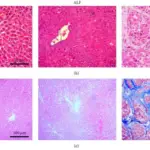Disorder of hemostasis due to vitamin K deficiency is the hemostatic disease due to vitamin K deficiency.
What is the Pathology of Disorder of Hemostasis due to Vitamin K Deficiency?
The pathology of disorder of hemostasis due to vitamin k deficiency is:
-Etiology: The cause of disorder of hemostasis due to vitamin k deficiency isn’t clear but considered obstructive jaundice as one of the causes.
-Genes involved: None.
-Pathogenesis: The sequence of events that lead to disorder of hemostasis due to vitamin k deficiency shows the deficiency of the proteins that require vitamin K for their synthesis, including prothrombin, factor X, factor IX, and factor VII.
How does Disorder of Hemostasis due to Vitamin K Deficiency Present?
Patients with disorder of hemostasis due to vitamin k deficiency typically newborn males and females present at the range of over 65 years. The symptoms, features, and clinical findings associated with disorder of hemostasis due to vitamin k deficiency include hemorrhage, bruises, Easy bruising, soft tissue hematoma, gastrointestinal bleeding, epistaxis, intracranial bleeding, hematuria, hemoptysis, intraperitoneal and retroperitoneal bleeding.
How is Disorder of Hemostasis due to Vitamin K Deficiency Diagnosed?
Disorder of hemostasis due to vitamin k deficiency is diagnosed using blood tests.
How is Disorder of Hemostasis due to Vitamin K Deficiency Treated?
Disorder of hemostasis due to vitamin k deficiency is treated by giving vitamin K once, then 12 – 24 hours later, then measuring PT (should normalize).
What is the Prognosis of Disorder of Hemostasis due to Vitamin K Deficiency?
The prognosis of disorder of hemostasis due to vitamin k deficiency is fair if treated in a timely manner.



